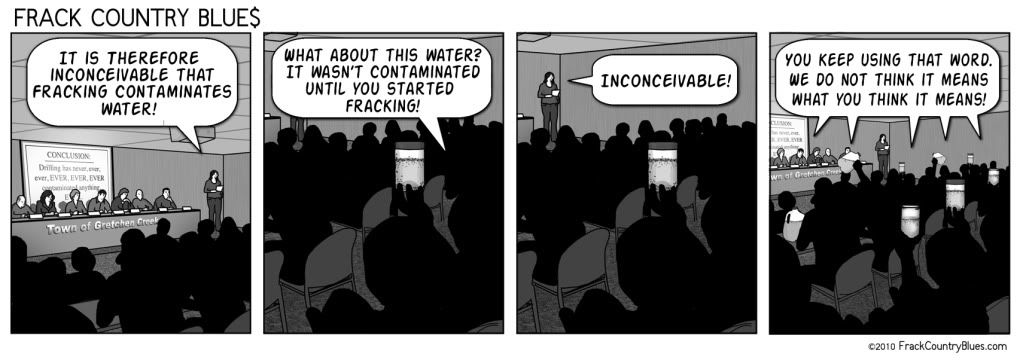We are really excited this week to host an independent journalist and two Pennsylvania bloggers who have covered the Marcellus Shale issues on the ground.
Hannah Abelbeck, who joined us last month, has worked for Voices of Central Pennsylvania covering environmental news for the last year. She has done two in-depth stories on the Marcellus and interviewed a few dozen people from several counties in Pennsylvania and New York.
Don Williams keeps his eye on the effects of Marcellus activities at his blog Susquehanna River Sentinel. He was born in northeastern PA not far from the heart of the Marcellus Shale Zone. I don't think it would be much of a stretch to say that Don is outraged at what he sees as the degrading effect that the natural gas industry has had on Pennsylvania. He uses his training in Earth and Environmental Science to look at water and land issues especially.
Karen keeps a quite different blog at Frack Country Blues. While she is certainly concerned and perhaps outraged, she writes, "Because sometimes all you have left is gallows humor…" Her blog uses comics to illustrate the problems that Marcellus drilling industry is creating, particularly in the Tioga State Forest near Wellsboro, Pennsylvania about 100 miles north of Penn State University Park.

She combines the comics with news stories and commentary to "to raise awareness about the consequences of natural gas drilling and the plight of the communities that live above the Marcellus shale – a plight that echoes the experiences from the gas fields in the western states where the air quality can be worse than Los Angeles’ and where the water is not just toxic, it’s flammable."
Flammable? Yes. Flammable. Watch this trailer for the movie Gasland.
Yes. Flammable.
Maybe that's an anomaly.
Guess not.
Hopefully today we will be enlightened further on what's going on at these places and what we might be able to do about it.
Listen in today on The Lion 90.7 from 5-6 pm to get more up to speed on this sustainability issue.
---
We hope to continue this conversation next week with some other bloggers and community activists in New York and Pennsylvania as well.
